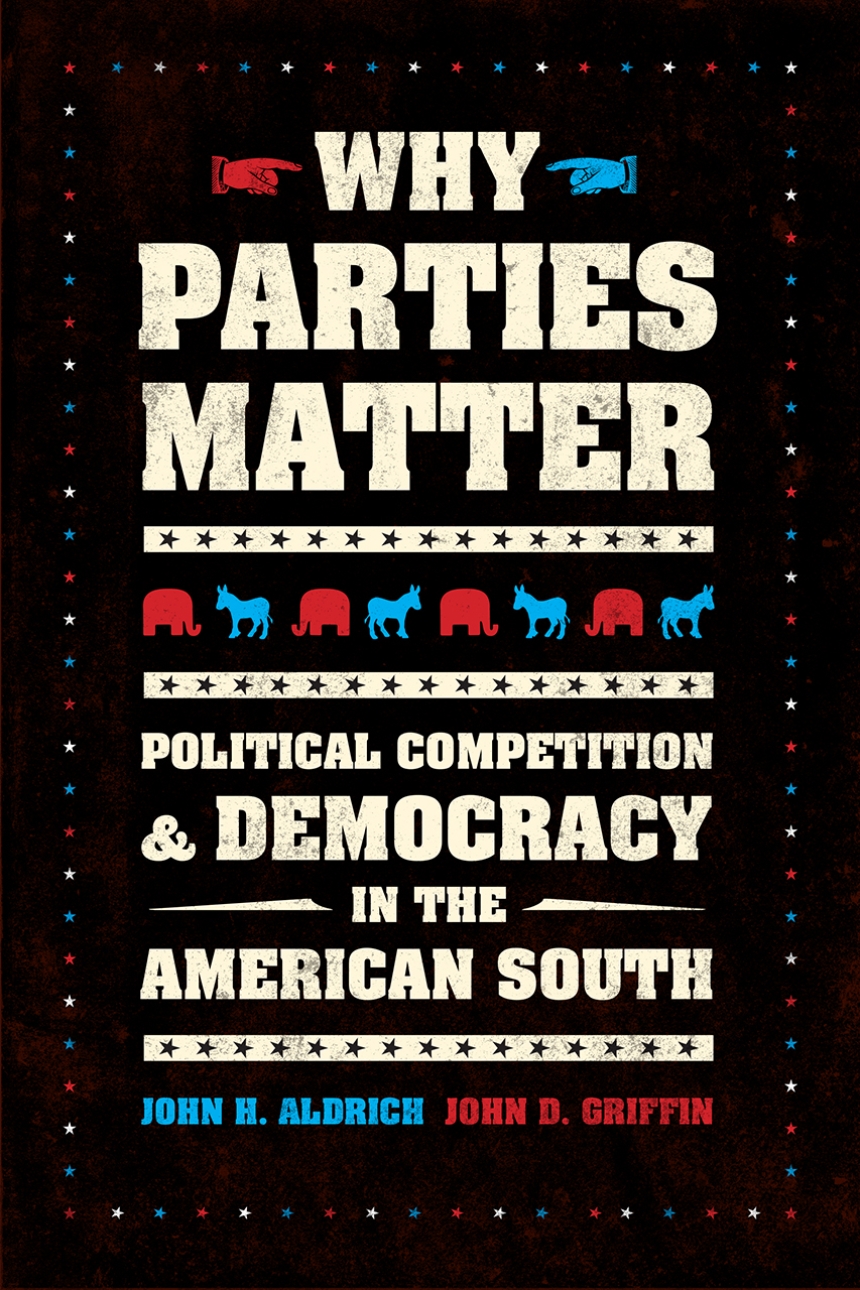Why Parties Matter
Political Competition and Democracy in the American South
9780226495378
9780226495408
Why Parties Matter
Political Competition and Democracy in the American South
Since the founding of the American Republic, the North and South have followed remarkably different paths of political development. Among the factors that have led to their divergence throughout much of history are differences in the levels of competition among the political parties. While the North has generally enjoyed a well-defined two-party system, the South has tended to have only weakly developed political parties—and at times no system of parties to speak of.
With Why Parties Matter, John H. Aldrich and John D. Griffin make a compelling case that competition between political parties is an essential component of a democracy that is responsive to its citizens and thus able to address their concerns. Tracing the history of the parties through four eras—the Democratic-Whig party era that preceded the Civil War; the post-Reconstruction period; the Jim Crow era, when competition between the parties virtually disappeared; and the modern era—Aldrich and Griffin show how and when competition emerged between the parties and the conditions under which it succeeded and failed. In the modern era, as party competition in the South has come to be widely regarded as matching that of the North, the authors conclude by exploring the question of whether the South is poised to become a one-party system once again with the Republican party now dominant.
With Why Parties Matter, John H. Aldrich and John D. Griffin make a compelling case that competition between political parties is an essential component of a democracy that is responsive to its citizens and thus able to address their concerns. Tracing the history of the parties through four eras—the Democratic-Whig party era that preceded the Civil War; the post-Reconstruction period; the Jim Crow era, when competition between the parties virtually disappeared; and the modern era—Aldrich and Griffin show how and when competition emerged between the parties and the conditions under which it succeeded and failed. In the modern era, as party competition in the South has come to be widely regarded as matching that of the North, the authors conclude by exploring the question of whether the South is poised to become a one-party system once again with the Republican party now dominant.
304 pages | 72 halftones, 17 line drawings, 20 tables | 6 x 9 | © 2017
Chicago Studies in American Politics
History: American History
Political Science: American Government and Politics
Reviews
Table of Contents
List of Tables
List of Figures
Part 1 Why Parties Matter
1 “Except in the South”
2 Political Parties, Electoral Competition, and Effective Democratic Governance
Part 2 The Exceptional South
3 Democratic-Whig Parties in the Jacksonian Era
4 Parties in the Post-Reconstruction Era
5 Parties in the Jim Crow South
6 The Southern Turn to Republicanism
Part 3 The Democratic Fruits of Party Competition
7 Party Systems and Electoral Competition
8 Competitive Party Systems and Democratic Responsiveness
9 Competitive Party Systems and Democratic Effectiveness
Acknowledgments
Notes
References
Index
List of Figures
Part 1 Why Parties Matter
1 “Except in the South”
2 Political Parties, Electoral Competition, and Effective Democratic Governance
Part 2 The Exceptional South
3 Democratic-Whig Parties in the Jacksonian Era
4 Parties in the Post-Reconstruction Era
5 Parties in the Jim Crow South
6 The Southern Turn to Republicanism
Part 3 The Democratic Fruits of Party Competition
7 Party Systems and Electoral Competition
8 Competitive Party Systems and Democratic Responsiveness
9 Competitive Party Systems and Democratic Effectiveness
Acknowledgments
Notes
References
Index
